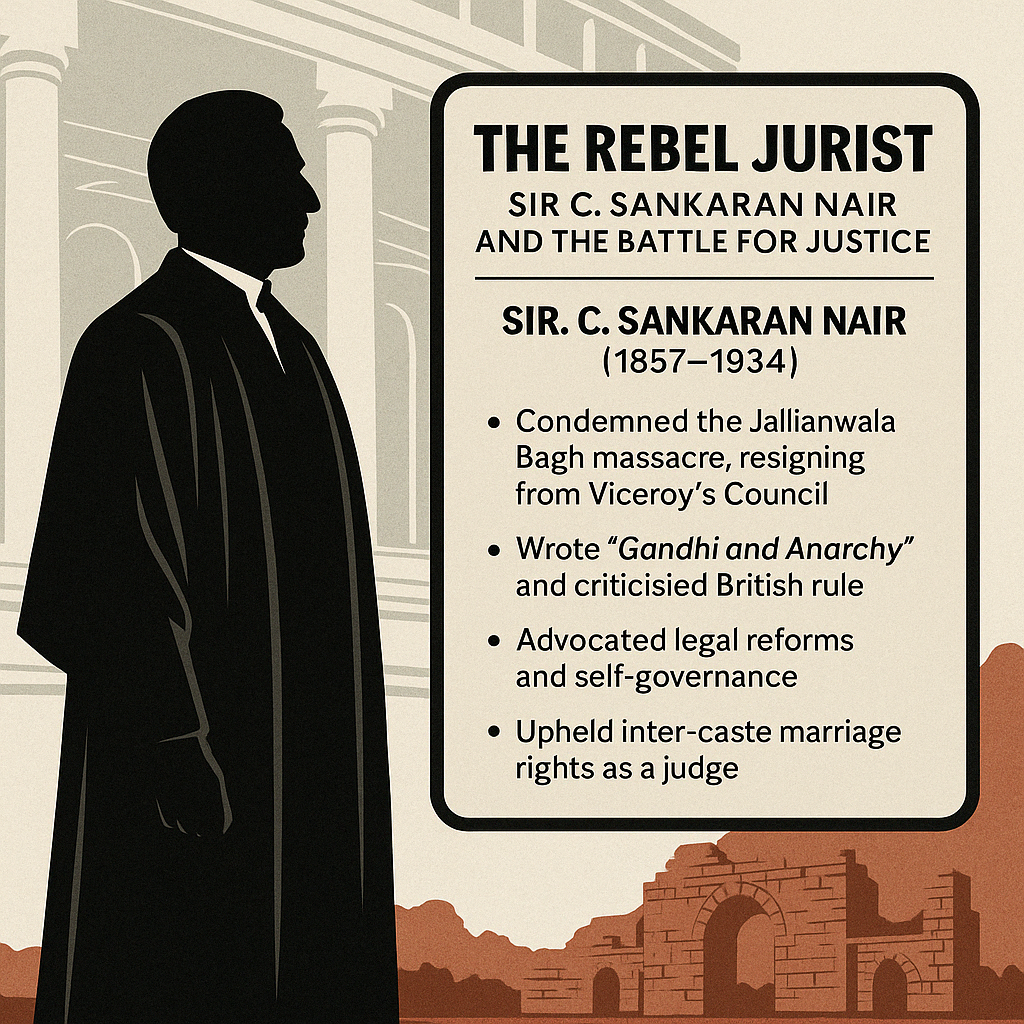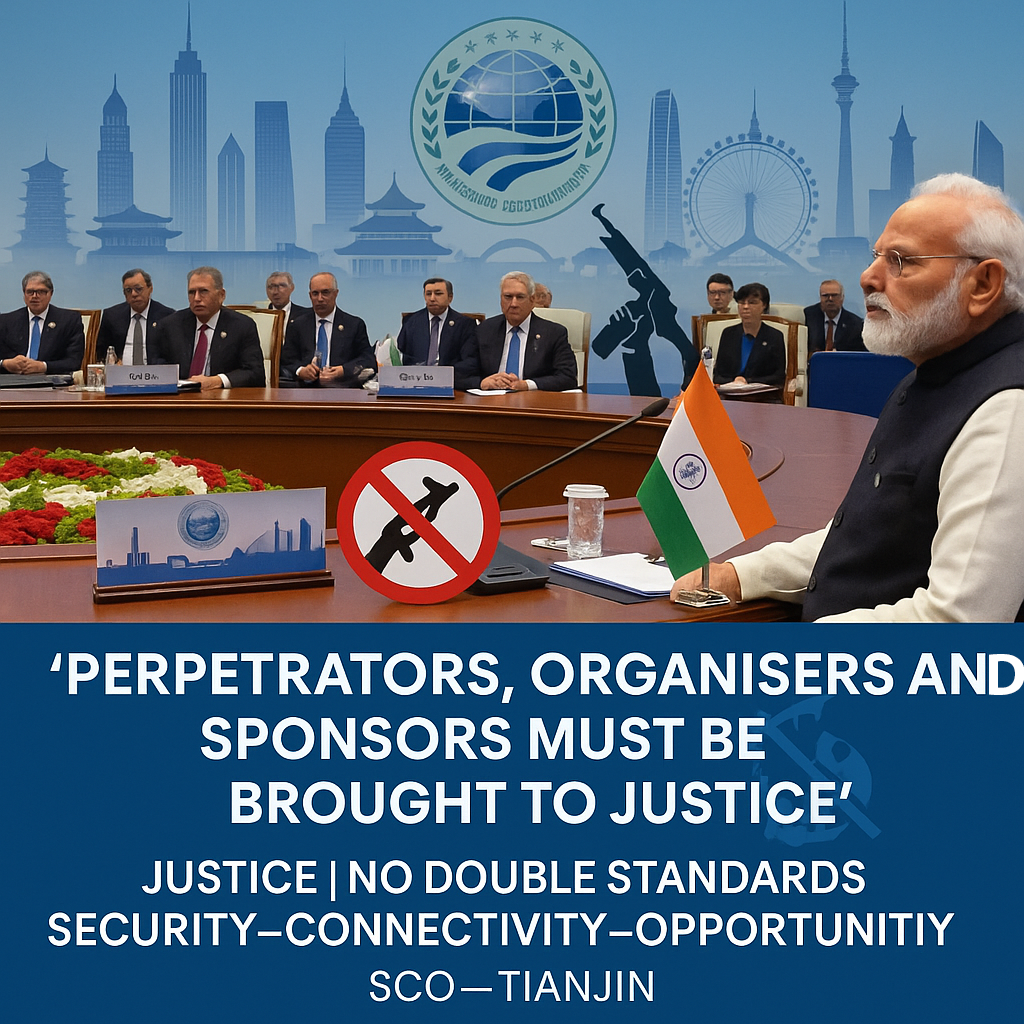
008- Apr 16, 2025
“The Resolute Gavel: Sir Sankaran Nair and the Ethics of Dissent”

🕊️ Thematic Focus
Category: Modern Indian History | Law & Social Reform | Jallianwala Bagh Legacy
🧷 Key Highlights
- Legacy Honoured: PM Modi commemorated Sir C. Sankaran Nair on the 106th anniversary of the Jallianwala Bagh massacre, celebrating his legal and moral courage.
- Early Foundations:
- Born 1857, Kerala; studied law at Presidency College, Madras.
- Mentored by Sir Horatio Shepherd — future Chief Justice.
- Judicial Stature:
- Public Prosecutor (1899), Judge, Madras High Court (1908), Knighted (1912).
- Served in Viceroy’s Executive Council, resigned post-Jallianwala in 1919.
- Freedom & Reform:
- Presided INC session, Amraoti (1897).
- Advocated for constitutional reform and self-governance, opposed Gandhi’s strategies yet fought British injustice.
- Wrote “Gandhi and Anarchy” (1922); held Michael O’Dwyer responsible for the massacre.
- The Defiant Trial:
- Faced a defamation case in Britain for his bold stand on Jallianwala; lost but refused to apologise.
- Social Visionary:
- Upheld inter-faith and inter-caste marriage rights, notably in Budasna v Fatima (1914).
- Founded Madras Law Journal and Madras Review, pioneering legal discourse.
🧠 Concept Explainer
What Makes a Judge a Revolutionary?
Sir Sankaran Nair’s greatness lies not in opposing the empire with violence, but with verdicts and resignations. He wielded law as a weapon of resistance and language as a scaffold for social justice. His life exemplifies how reform is not rebellion — it is a deeper loyalty to truth.
📜 GS Paper Mapping
- GS Paper I: Modern Indian History – Freedom Struggle, Personalities
- GS Paper II: Indian Polity – Judiciary, Legal Reforms
- Essay Paper: Ethics of Dissent and Civil Courage
💭 A Thought Spark — by IAS Monk
“He rose not to shout, but to judge; not to escape history, but to inscribe it — with ink, with gavel, with courage.”


















